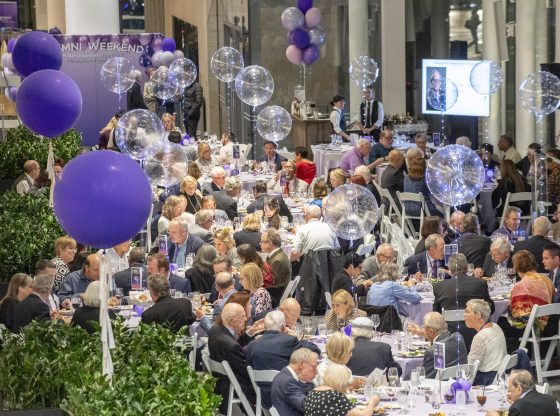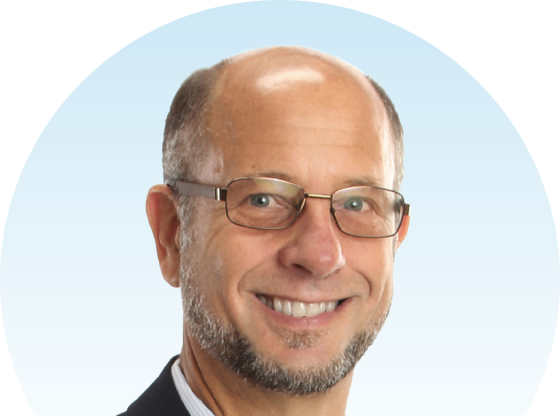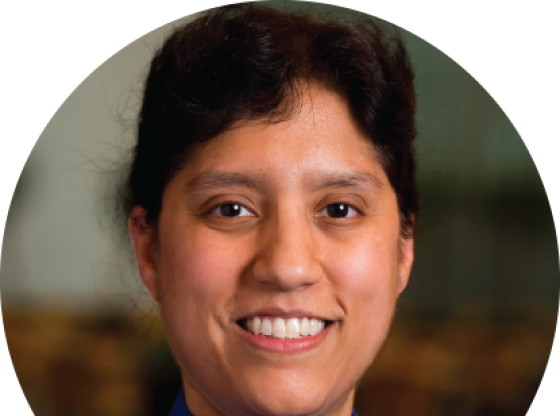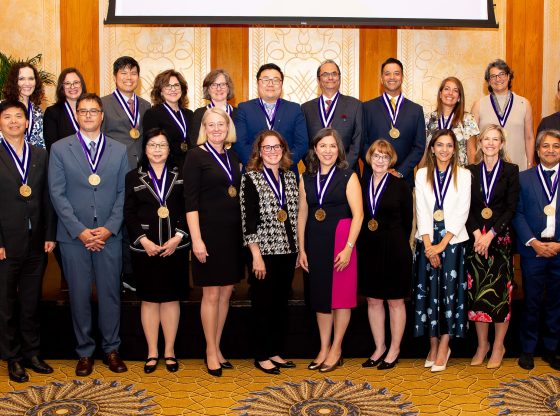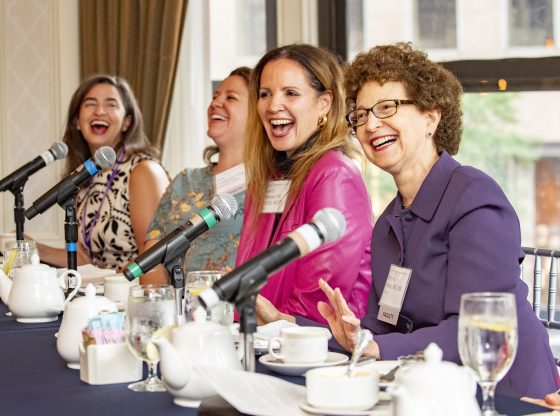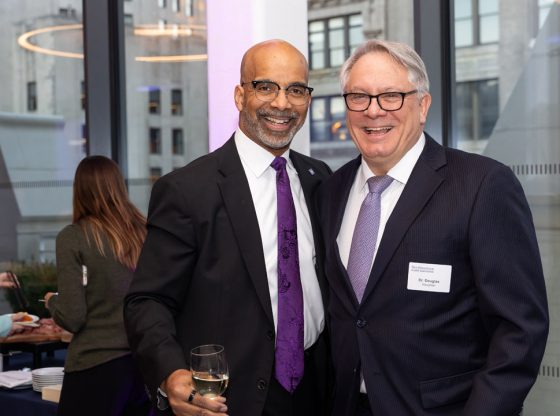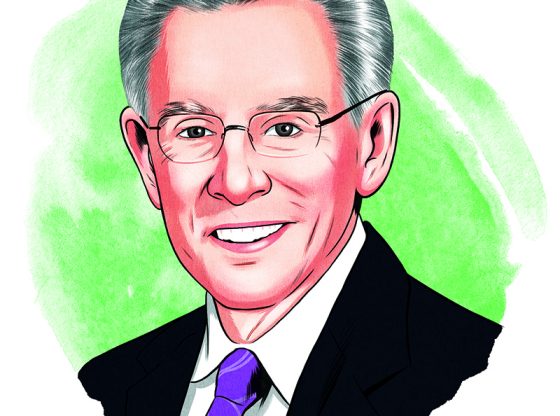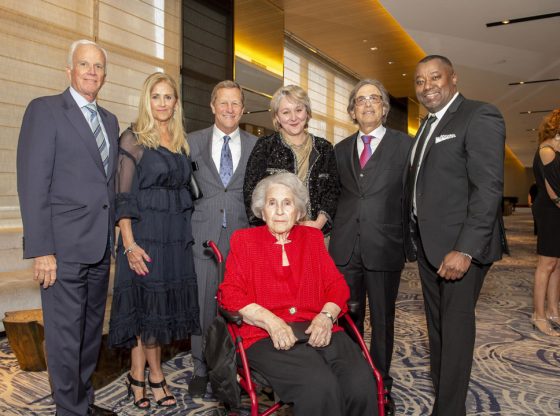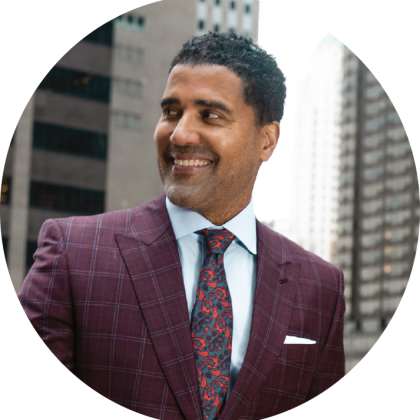
William D. Yates, ‘85 MD, shares his unique experience and perspective as an African American medical student at Feinberg.
An African American born and raised in a middle-class family, William D. Yates,’85 MD, attended public schools in Chicago throughout his life until being accepted into the six-year Honors Program in Medical Education at Northwestern. It was through his inner-city, public-school education that Yates gained an understanding and tolerance of the world and its diverse inhabitants; the Chicago public school system was a melting pot of cultures that provided students like Yates the opportunity to develop meaningful relationships with people of many races and cultures.
“This experience was critical to my development,” Yates explains. “It prevented me from accepting the prevalent stereotypes associated with culture and race, which I found to be terribly inaccurate.”
The ability to work with diverse groups of people from a multitude of cultures and ethnicities has assisted Yates in his career, allowing him to pursue a non-traditional medical career path. “I have always had an entrepreneurial spirit, and I’m continuously thinking of simple solutions to seemingly complex problems,” Yates says. “My latest project is a patented auto theft anti-carjacking device, and at one time during my career I owned an auto dealership.” Yates also developed a patented medical device, the ARTAS Hair restoration robot.
Getting to where he is today wasn’t easy, and Yates said much of his success can be attributed to the mentors he worked with at Feinberg. Yates’s mentors included professor of Orthopedic Surgery James Hill, ’70 MD,’79 GME, an African American orthopedic surgeon Yates met during his first year of medical school; renowned neurosurgeon and former associate professor of neurosurgery Leonard Cerullo, MD, ’77 GME; and Carl Backer, MD, ’85, ’87 GME, who served as his general surgery mentor.
The best advice that I can share would be to always maintain your curiosity and always be a student of medicine.
William D. Yates, MD
Influenced by the surgeons he met during medical school, Yates decided to go into general surgery. “Dr. Hill was a living example of what you could achieve with passion and hard work,” Yates says. “And although I ultimately decided to go into general surgery, Dr. Cerillo was very encouraging and enthusiastic about neurosurgery, making the study of something as complex as neurosurgery very understandable and rewarding.”
In Backer, who was chief resident at the time, Yates discovered a physician who had a breadth of knowledge, friendly demeanor, good bedside manner, and the ability to simplify complex subjects into concepts that were readily understandable—all traits that he admired and aspired to.
“They [Yates’s mentors] all exhibited academic excellence, impeccable technique, timeliness, and always presenting themselves well,” Yates says. “All these attributes defined how I practiced medicine.”
Although Yates had a robust support team in both Feinberg faculty and fellow students, he did experience adversity when he first began his medical journey. “If I had any adversity in my practice, it would be once I left my trauma fellowship and joined another surgeon who was fresh out of residency,” Yates maintains. “Both of us were quite competent, but we did not have the luxury of being experienced as other seasoned surgeons were. We also did not have a sounding board for discussing difficult cases or surgical assistance in cases that we never encountered during our training.”
As a result, Yates advises all students and residents to join a group with mature, seasoned physician leaders so that they can benefit from all their experiences with a myriad of cases that will help them avoid unintentional costly mistakes. “Even though you may be at the end of your fellowship, and you pass all your board certifications and feel pretty good about yourself, believe me: in the real world, there will be situations that you have never contemplated and therefore never treated, but you will be called on to treat these patients,” Yates says. “At times like these, it is very comforting to have someone in your corner who has been there and can put you on the right path.”
With his diverse background and influences from stellar physicians, Yates says he is able to nurture and advise other students, residents, and new physicians just starting out in the medical field. “The best advice that I can share would be to always maintain your curiosity and always be a student of medicine,” Yates urges. “Treat all people equally with respect no matter who they are, avoid unnecessary conflict, be kind to your physician peers, and resist any impulse to be punitive. Lastly, find a seasoned physician to align yourself with because you are never as smart as you think you are.”

